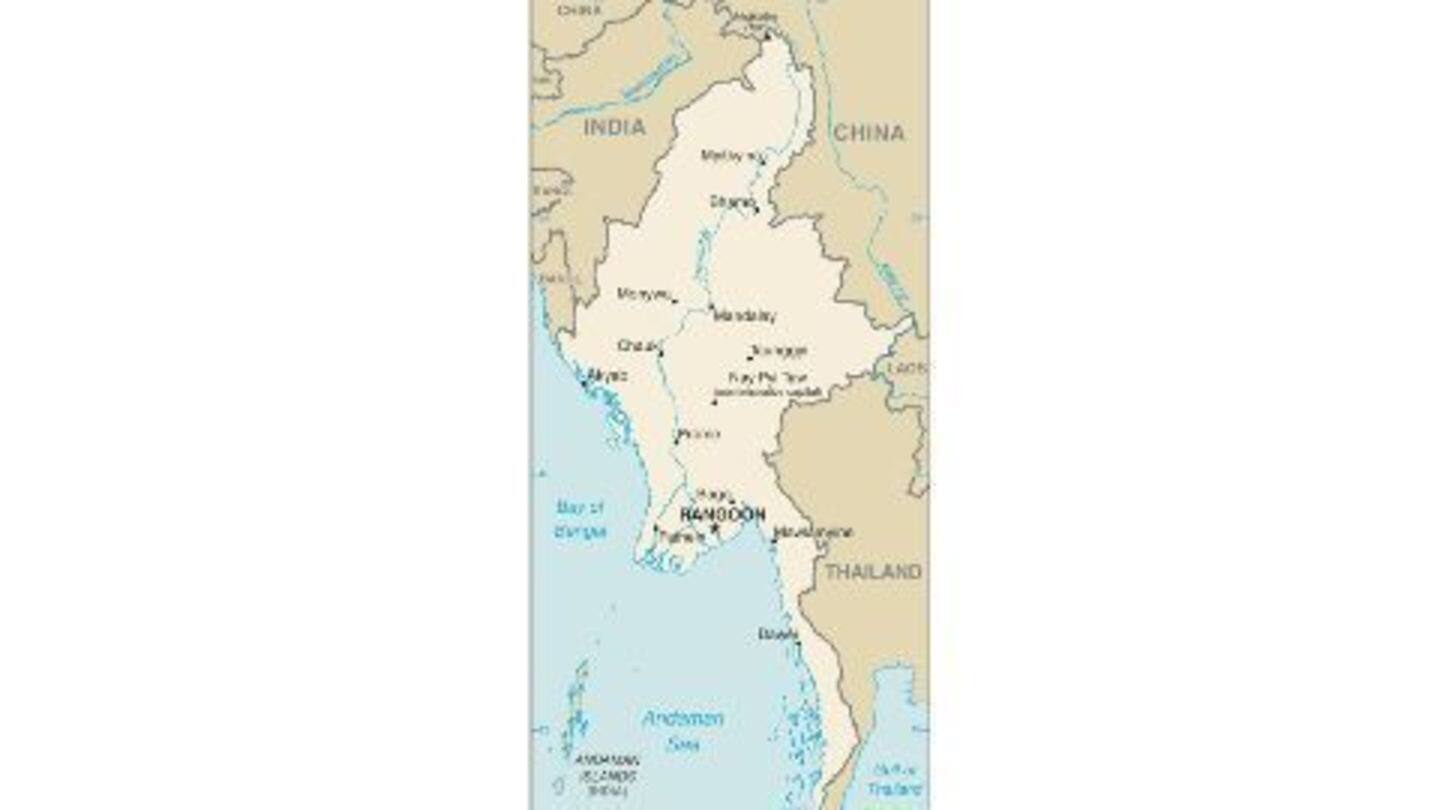
US happy over Myanmar ceasefire agreement
What's the story
United States has expressed happiness over the signing of the ceasefire agreement between Myanmar government and ethnic rebel groups.
US said that all signatories must adhere to the agreement and end the longest running civil war in the world.
The super-power would support full implementation of all agreements the NCA, existing bilateral ceasefires, and the political dialogue that follows.
Data
What's the civil war?
After Myanmar's independence in 1948, several civil conflicts emerged within Myanmar. Protests over the recognized exclusion of ethnic minority groups in the governing of the new post-independence country led to revolts from various ethnic minority groups.
Effects
How did the civil war affect the people?
The civil war has till date claimed more than 600,000 lives and displaced 1,000,000 people.
Landmines were used by both the government and rebel factions, which have not been disarmed yet and have caused accidental civilian injuries and casualties.
Victims of landmines were forced to travel to the Thai-Myanmar border to seek treatment as local hospitals and facilities lack proper equipment and funding.
Responses
Condemnation by the United Nations
Myanmar's government was criticized by the UN general assembly in 2009 for violations of human rights.
According to a research by Harvard University's International Human Rights Clinic (IHRC), three Burmese generals had committed war crimes and crimes against humanity in Southeast Myanmar under the military regime.
According to a report submitted to UN, Myanmar government used scorched earth policy against rebels.
Data
What is the scorched earth policy?
A scorched earth policy is a military strategy that involves destroying anything that might be useful to the enemy while advancing through or withdrawing from an area.
15 Oct 2015
Myanmar and 8 rebel groups sign ceasefire agreement
Aiming to end the long running conflict in the country, government of Myanmar and eight armed rebel groups signed a ceasefire agreement.
Though, 7 out of the 15 armed groups backed out of the signing which remained a matter of concern.
President Thein Sein called it a historic gift to future generations.
Karen National Union (KNU), Myanmar's oldest armed group, also signed the agreement.
Negotiations
Former ceasefire agreements by the Myanmar government
Myanman government signed ceasefire agreements with 17 armed groups between 1989 and 1997 bringing them under the government's Border Area Development Programme and letting armed group to retain their territory and weapons in return for a ceasefire.
Due to the agreement, the government was able to focus its energies away from the armed insurgents in the ethnic areas and towards territories under their control.